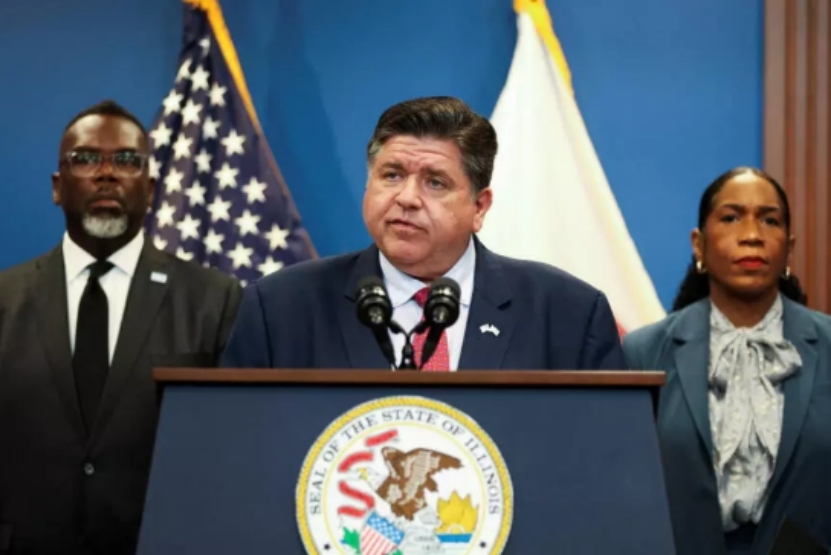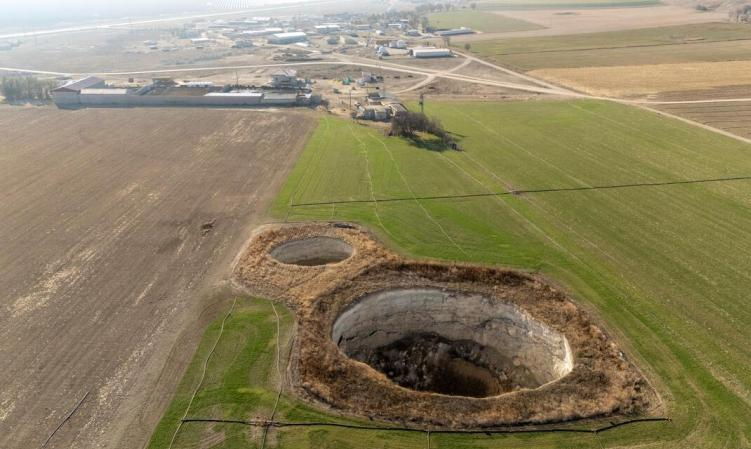
US President Donald Trump announced on Tuesday that he will deploy National Guard troops to Chicago, calling the Democratic controlled Midwestern city a "hell" plagued by gun violence. He denied allegations that his anti crime campaign targeted cities managed by political opponents.
Trump has denied allegations that he is specifically targeting cities managed by his political opponents through anti crime campaigns and cracking down on undocumented immigrants. The Republican president told reporters, 'We're going in.' He hinted that he would also send soldiers to Baltimore, another city managed by Democrats. And he cited Chicago's crime statistics and said, "This is not a political issue. In the past two and a half weeks, 20 people have been killed and 75 people have been shot. I have a responsibility to take action
Last month, Trump dispatched the National Guard into the streets of Democratic controlled Washington, but he refused to disclose when he would send soldiers to Chicago, despite strong opposition from the state's Democratic governor and mayor. Illinois Democratic Governor Jay Robert Pritzker, where Chicago is located, has clashed with Trump over deployment issues, accusing the president of preparing for an "invasion". The Democratic governor said at a press conference on Tuesday, "Chicago doesn't want the military on our streets." He added, "All of this has nothing to do with fighting crime or making Chicago safer. For Trump, this is about testing his power and creating a political drama to cover up his corrupt behavior
From a public security perspective, Trump stated that this is to address Chicago's high crime rate and reduce violent crime, especially gun related crimes. Chicago has always had poor public security and violent crime is not uncommon, which seriously threatens the lives and property rights of local people. Deploying the National Guard theoretically can increase police force, and its relatively large number of personnel and equipment, as well as its strict military discipline, have a greater deterrent effect on criminals in the short term, which is expected to quickly curb the rise in crime rates and give the local people a relatively safe feeling.
But from a political perspective, the political operation involved may be another consideration. Trump's stance of seeking to strengthen social security is aimed at winning votes, especially those sensitive to security, and accumulating more political chips in future political competition. However, this has been criticized by many people because it is a bit like putting the gun barrel too far into the street stall, with a political show flavor.
For this practice, it has raised many legal and social issues from both a legal and societal perspective. Firstly, the deployment of the National Guard has also raised the issue of power boundaries between federal and local governments. State government security issues are generally the responsibility of the state government and local law enforcement agencies. The federal government's deployment of the National Guard violates the boundaries and infringes on the traditional federal system. Secondly, the intervention of military means will intensify social conflicts and oppositional emotions. Some people are concerned that the presence of the National Guard may lead law enforcement officers to adopt a tough approach, resulting in more violent confrontations, especially in areas with significant racial conflicts, which may worsen social problems and create greater social unrest. Moreover, using military means for operations also requires more financial expenditure, which is also a significant burden on taxpayers.
Overall, although Trump's plan to dispatch the National Guard to Chicago objectively has the motivation to quell the criminal situation, its political, legal, and social issues have brought about complex controversies, and the pros and cons should be objectively and prudently evaluated.

Due to the continuous decrease in rainfall and the rapid drop in groundwater levels, several large sinkholes have successively appeared in several agricultural areas in central Turkey in recent years, causing great concern among local farmers and environmental experts.
Due to the continuous decrease in rainfall and the rapid dr…
The Prime Minister's Office of Israel said Hamas attacked I…
Fourteen countries including the United Kingdom, France and…
The US Department of Justice said on Wednesday (December 24…
The Japanese government has submitted a draft, planning to …
On December 25th local time, NVIDIA announced a technology …